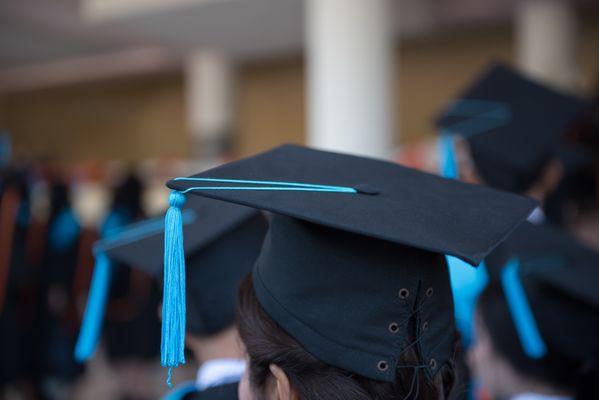3.1.5
State & Private Schools
Arguments for Private Education
Arguments for Private Education
State schools are funded by the government. Private schools are funded by parents who wish to send their children to these schools. They are also called independent or public schools.


Facilities
Facilities
- The size of the class:
- Private schools offer smaller class sizes and teachers can focus more on the pupils as there is a better teacher-pupil ratio.
- The facilities:
- Facilities are better as parents pay fees.
- The school’s budget is higher and the school is free to spend its budget according to their needs.


Curriculum
Curriculum
- Curriculum:
- They don’t have to follow the official/national curriculum, and so they can focus on certain subjects.
- The informal learning might be better. This is where pupils learn necessary skills for life which later on will put them at an advantage in comparison to their peers.
- They don’t have to follow the official/national curriculum, and so they can focus on certain subjects.


Ethos
Ethos
- Work ethic:
- These schools have a positive work ethic where academic subjects are put in priority.
- Results:
- They tend to have higher grades in comparison to alternative provision.


Next steps
Next steps
- Access to universities:
- Better results means that they have better chances of being admitted to top universities.
- Jobs:
- Better universities mean better jobs, highly paid, high-status careers.
Arguments Against Private Education
Arguments Against Private Education
State schools are funded by the government. Private schools are funded by parents who wish to send their children to these schools. They are also called independent and public schools.


Inequality
Inequality
- Inequalities:
- Private schools feed the inequalities in society.
- Parents who can afford private education will send their children there.
- As a result, they will receive a better education, giving them better chances of getting into the best universities, and getting the best jobs later in life.


Division
Division
- Division:
- Private education perpetuates social division.
- In other words, those who can afford it will remain at the top of the hierarchy whereas those who cannot get fewer or lesser opportunities.


Neglect
Neglect
- State education is neglected:
- If parents who give their money and interest to private schools allocated all this energy and resources to state education, the latter would be much better, and all pupils would benefit.
1The Sociological Approach
1.1Introduction to Sociology
1.2Sociological Approaches
1.3The Consensus vs. Conflict Debate
2Families
2.1Functions of Families
2.2Family Forms
2.3Conjugal Role Relationships
2.4Changing Relationships Within Families
2.5Criticisms of Families
3Education
3.1Roles & Functions of Education
3.2Processes Within Schools
4Crime & Deviance
4.1The Social Construction of Crime
4.2Social Control
4.3Criminal & Deviant Behaviour
5Social Stratification
5.1Social Stratification
5.2Poverty as a Social Issue
6Sociological Research Methods
6.1Research Methods
6.1.1Research Design
6.1.2The Scientific Method
6.1.3Other Considerations
6.1.4Primary Sources
6.1.5Secondary Sources
6.1.6Surveys
6.1.7Sampling
6.1.8Questionnaires
6.1.9Interviews
6.1.10Observation
6.1.11Statistics
6.1.12Case Studies
6.1.13Longitudinal Studies
6.1.14Ethnography
6.1.15Experiments
6.1.16Small Scale Research
6.1.17End of Topic Test - Research Methods
Jump to other topics
1The Sociological Approach
1.1Introduction to Sociology
1.2Sociological Approaches
1.3The Consensus vs. Conflict Debate
2Families
2.1Functions of Families
2.2Family Forms
2.3Conjugal Role Relationships
2.4Changing Relationships Within Families
2.5Criticisms of Families
3Education
3.1Roles & Functions of Education
3.2Processes Within Schools
4Crime & Deviance
4.1The Social Construction of Crime
4.2Social Control
4.3Criminal & Deviant Behaviour
5Social Stratification
5.1Social Stratification
5.2Poverty as a Social Issue
6Sociological Research Methods
6.1Research Methods
6.1.1Research Design
6.1.2The Scientific Method
6.1.3Other Considerations
6.1.4Primary Sources
6.1.5Secondary Sources
6.1.6Surveys
6.1.7Sampling
6.1.8Questionnaires
6.1.9Interviews
6.1.10Observation
6.1.11Statistics
6.1.12Case Studies
6.1.13Longitudinal Studies
6.1.14Ethnography
6.1.15Experiments
6.1.16Small Scale Research
6.1.17End of Topic Test - Research Methods
Unlock your full potential with Seneca Premium
Unlimited access to 10,000+ open-ended exam questions
Mini-mock exams based on your study history
Unlock 800+ premium courses & e-books